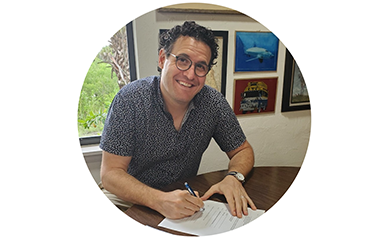Ryan Orgera, a U.S.-based marine governance expert, has launched Accountability.Fish to spur operational change in regional fisheries management organizations (RFMOs).
Orgera said the new movement aims to raise awareness of the politics behind RFMOs, which he said is leading to unsustainable management and poor accountability on decisions made to recover important fisheries. Another goal of the movement is to connect the fishing market interests such as retailers, labor unions, and other affected stakeholders to the RFMO decision-making processes.
“RFMOs didn’t start out as a problem. They started out as a way to address a problem – how to take care of critical fisheries in international waters,” Orgera said. “But like many international bodies, RFMOs lack teeth and are famously bad at holding their members accountable for sticking to the decisions they do adopt. The rationale for their existence is to ensure conditions conducive to the long-term success of the fish and the fisheries they manage. However, all too often, they choose short-term gain for certain special interests over long-term sustainability for all. Their consensus-based decision-making process is also a recipe for backroom deals being hatched well outside of the actual meetings themselves.”
The creation of Accountability.Fish was announced during a meeting of the International Commission for the Conservation of Atlantic Tunas (ICCAT), one of the 17 RFMOs governing the world’s oceans. Together, the 17 international bodies cover marine resources and fisheries within international waters, and though they are independent of each other. However, Orgera said each of the RFMOs suffer from a general lack of public knowledge about their power levels, a high degree of influence from industrial fishing companies, and barriers making interactions between RFMOs and citizen and conservation groups difficult.
“For too long, the lopsided power that member-states give their fishing industries has left consumers, workers, and retailers out of this process and on the sidelines. The end result is a broken system with zero accountability and lousy outcomes for people and planet,” Orgera said. “This might not be the biggest problem the planet faces – but it’s big enough and it’s solvable. Together, we can be the solution.”
Accountability.Fish is calling for open access to RFMO proceedings and discussions for all stakeholders, not just for member-state representatives. In 2023, the movement aims to raise awareness of RFMO mismanagement and identify ways to bring accountability to the RFMO decision-making process. Ultimately, Accountability.Fish hopes to support equal stakeholder contribution to RFMO decision-making processes, improve accountability of RFMO decisions, and influence change to improve economic and environmental sustainability.
Photo courtesy of Ryan Orgera/LinkedIn







